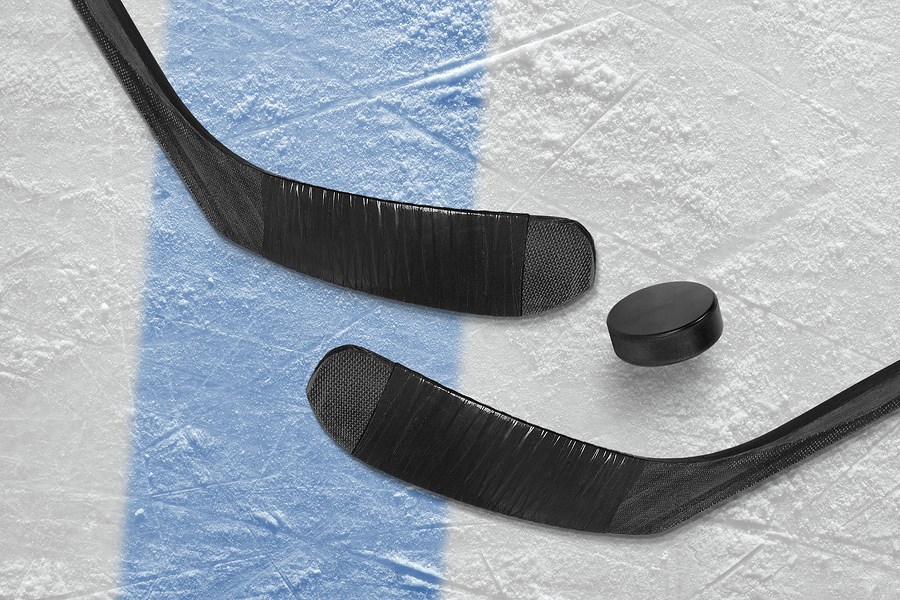I’m a hockey fan and I’m in a bind. My favourite sport - hell, my favourite art form - has been in stasis since COVID-19 dropped.
There’s been a glimmer of hope, though. The NHL is apparently planning on a 24-team play-in, then play-off system of games. It’s as close to normal as possible, given the circumstances.
Under the current plan… well, the NHL hasn’t actually released a plan. The league is looking at using two main locations - their term is “hub cities” - to host postseason hockey this year, in lieu of having teams host their own games.
According to the current scuttlebutt among sports journalists and pundits, the leading cities to be NHL hubs are Las Vegas, Edmonton, Toronto and Vancouver, along with possibly others. Any possible NHL hub locale would need to have at least two rinks to provide a designated practice space and a game space, a secure hotel facility and amenities to cover a large number of people.
I have another idea. Yeah, it’ll sound crazy - that’s fine. Just hear me out. Screw it - let’s see if Flin Flon and northern communities could work as hub cities.
Look, just hear me out, okay?
Since the NHL hasn’t released an actual plan yet, I’ll work off the basic tenets of the plan released for the NBA. Both leagues will hold their games in centralized areas. Players from outside the country would travel, first to their team’s location then to whatever location is determined to the hub city, undergoing testing at major stages along the way. Once they arrive, players will be kept sequestered on a secure campus with recreation options and practices will slowly be phased in. Eventually, games will be played with no crowds, broadcast live on television around the world.
There is nothing about any of those rules that has to be specific to a major city. In fact, going with smaller, already isolated centres would be better at keeping away COVID-19.
How are the aforementioned possible hub cities doing on COVID-19? Let’s look at the numbers.
How many cases have been found in each of those cities? Las Vegas (or at least, Clark County, Nevada) has had 10,486 cases of COVID-19. Edmonton has had 846. Toronto’s reported almost 14,000 and while there are no exact numbers for Vancouver, B.C. has reported 2,790 cases total.
Each of those cities is still reporting several active cases a day and deaths are in the triple digits.
You know where it hasn't been dangerous for COVID-19? Northern Manitoba.
There hasn’t been a new case here since April. Travel for non-essential reasons into the north is still kinda sorta restricted - though that health order has more holes than old Swiss cheese - but with stringent testing and a ready-to-use quarantine policy similar to the ones the NBA has proposed, a northern league would be safer than any other option on the board.
Keeping 24 NHL teams, their rosters and staff would be a bit much for Flin Flon - assuming each team brings in a skeleton crew of 40-50 people, low-end, that still means almost a thousand people, which might overwhelm the Victoria Inn and the Oreland just a bit. However, Flin Flon is not the only Manitoba town with some amenities and no COVID-19.
Take the Western Conference - 12 teams in total - and split the teams up into three or four smaller, naturally isolated groups. Even with television broadcast crews, support staff and other non-team league personnel around, smaller hubs could work. Each hosts two play-in series, then two opening round series and one second round series before moving the remaining rounds to a central location.
The Pas/OCN has two rinks and a few good local hotels that aren’t being used much at the moment. I’m sure the people running the Kikiwak Inn or the Wascana Inn would appreciate another 50-100 people in their rooms right now. Thompson has a two-sheet rink set-up and its own local hotels. Further south, Dauphin has a big rink and a small rink and an accommodations sector reeling from events like Dauphin’s Countryfest being cancelled.
Yes, those arenas may not be up to typical NHL standard. Literally nothing suggested by the league itself is up to NHL standard. You don’t need an 18,000-seat arena when there’ll be a hundred fans tops in the crowd. That’s exactly the kind of crowd the Whitney Forum or other rinks could handle with ease. Even those smaller rinks can be used as practice facilities - use once in the morning, scrub down vigorously and bring the other team in, then scrub again for the other set of teams the next morning.
Vulnerable communities without hospitals, including reserves, would be off-limits, but that’s hardly shocking - checkpoints and curfews are still in place for most northern isolated communities.
A northern-based NHL system would not mean keeping all players and personnel locked down under constant supervision for any longer than two weeks, if that. People could run, fish, hunt or generally get lost when they’re not on the ice. After all, the only people at risk of carrying the disease are the people coming north - and if they’re tested strictly, how much danger do they pose?
The economic gain for each host community could mean a huge boom, not only in cold hard cash but in notoriety. Money can’t buy advertising like this.
You might ask: “Is this guy serious?” The answer is yes and no. I think this could be great and possibly feasible, but I wouldn’t bet on it happening.
Desperate times call for desperate measures, but even in times of despair, there’s always an angle someone can use to find their own gain. That’s how Flin Flon and the north should think of this. We can use our own lack of infection as an asset - and one big way to do it would be to pull the hockey world north.




